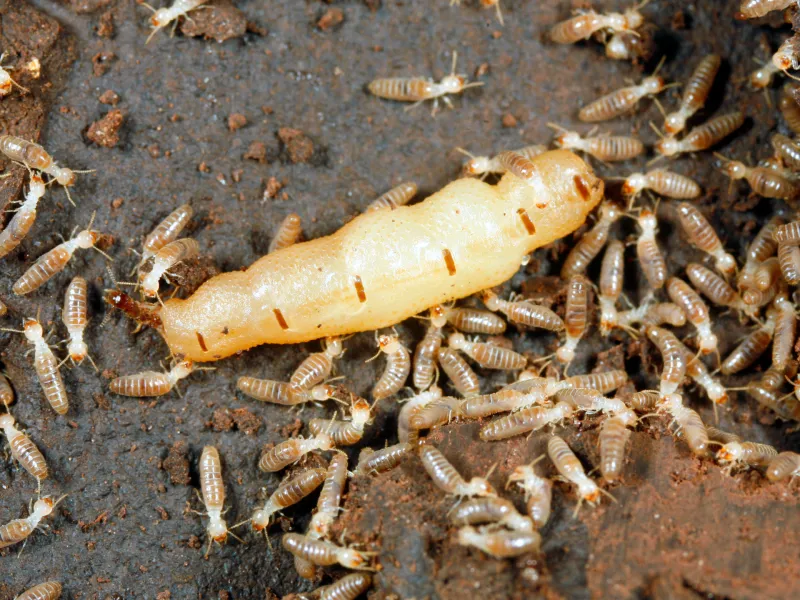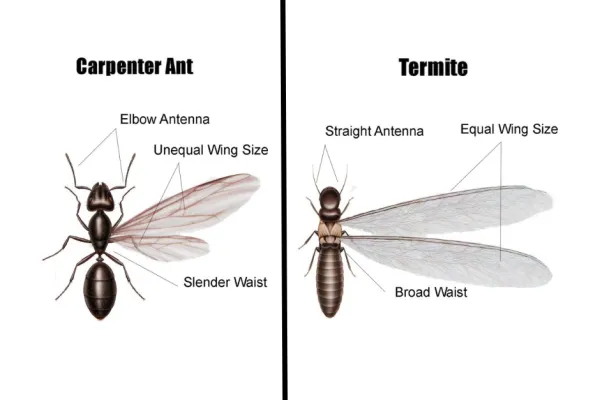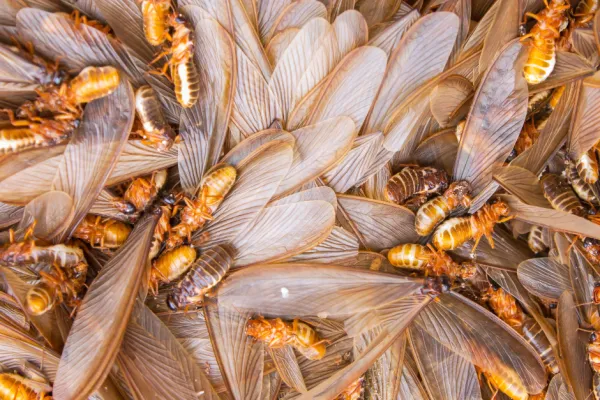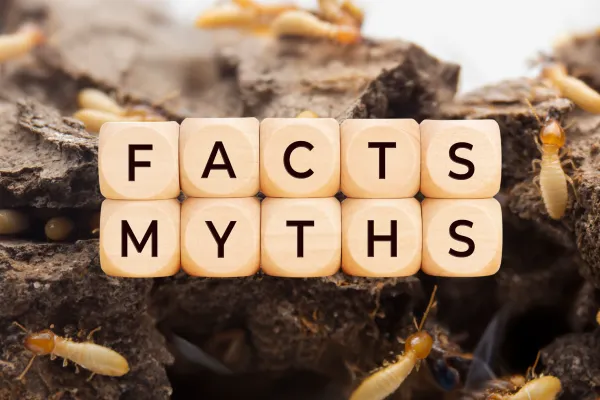Best Time For Termite Prevention

Best Time For Termite Prevention
Winter is all about staying warm, cozy, and termite-free. While you may think termites take a winter break, these wood-destroying pests remain active year-round. Winter is an ideal time for termite prevention, especially if you want to protect your Williamsburg home before the busy spring season rolls around.
In this blog, we'll cover why winter termite prevention is essential, how termites behave during colder months, and how Mares Exterminating can help keep these destructive pests out of your home for good.
The Winter Termite Myth
Many people believe that termites disappear during the winter. But here's the truth: termites may slow down in colder weather but don't stop working altogether. Subterranean termites, the most common type in Poquoson, VA, simply burrow deeper into the soil to escape the chill. And if they're already inside your home, they'll stay warm and active, happily munching on your walls, floors, and furniture.
This means winter isn't a time to relax when it comes to termite prevention—it's the time to act!
Why Winter Is Prime Time for Termite Prevention
So, what makes winter the best season to focus on termite prevention in Williamsburg? Here are some key reasons:
1. Catch Termites Early
During the winter, termites aren't swarming (a behavior that typically happens in spring). This means pest control professionals have a better chance of identifying hidden infestations before they grow into a full-blown problem. Spotting termite activity early can save you thousands of dollars in repairs.
2. Easier Home Inspections
With trees bare and less dense landscaping, it's much easier for professionals to inspect your property for signs of termites during winter. Accessing your foundation, crawl space, and other vulnerable spots is much simpler.
3. Prevention Before the Swarm
By addressing termite risks in the winter, you're getting ahead of the spring swarm season. When temperatures rise, termites become more active and start reproducing rapidly. Winter treatments ensure your home is protected before this happens.
4. Less Competition for Services
Since many homeowners don't think about termites in the winter, pest control companies often have more availability. You'll have an easier time scheduling inspections and treatments during this quieter season.
Understanding Winter Termite Behavior
To understand why prevention is so critical, it helps to know how termites behave in the winter:
Subterranean Termites: These pests retreat deeper into the soil during winter to stay warm. However, if they've already found a warm spot inside your home, they'll remain active, feeding on wood 24/7.
Drywood Termites: Unlike their subterranean counterparts, drywood termites don't require contact with soil. If they're living in your home, they're completely unaffected by outdoor temperatures.
Colony Survival: Termite colonies are highly resilient, with workers ensuring the survival of the queen and colony members even during colder months.
The bottom line? Termites don't take a holiday, and neither should your termite prevention plan.
Signs of a Winter Termite Problem
Even in the winter, termites leave behind telltale signs of their activity. Be on the lookout for:
Mud Tubes: Subterranean termites build pencil-sized mud tunnels to travel between soil and wood.
Hollow Wood: Knock on wooden structures. If they sound hollow, termites may have already caused damage.
Frass (Droppings): Drywood termites leave behind small, pellet-like droppings near infested areas.
Swollen Floors or Walls: Termite damage can cause wood to warp, leading to uneven surfaces.
Discarded Wings: Although termites aren't swarming in winter, leftover wings from previous activity may still be visible.
If you spot any of these warning signs, it's time to call the professionals at Mares Exterminating for a thorough inspection.
Winter Termite Prevention Tips
Want to protect your home from termites this winter? Here are some practical steps you can take:
Seal Cracks and Gaps: Inspect your home's foundation, walls, and roof for any cracks where termites could sneak in.
Eliminate Moisture: Fix leaky pipes, gutters, and drains, as termites thrive in damp environments.
Remove Wood-to-Ground Contact: Keep firewood, mulch, and wooden structures away from your home's foundation.
Schedule an Inspection: Professional termite inspections are the best way to identify and address termite activity.
Invest in a Termite Treatment Plan. Preventative treatments, such as liquid barriers or baiting systems, can stop termites before they cause damage.
How Mares Exterminating Can Help
At Mares Exterminating, we specialize in protecting homes in Williamsburg, VA from termite damage—no matter the season. Here's how we can help:
Thorough Inspections: We'll assess your property for signs of termite activity and identify any areas of concern.
Custom Treatment Plans: We offer solutions tailored to your home's needs, building construction and other factors.
Preventative Measures: Our experts focus on long-term prevention to keep termites out all year round.
Ongoing Support: With our regular inspections and treatments, you can rest easy knowing your home is protected.
Winter is the perfect time to take control of termite prevention and protect your home before the spring swarm season. By scheduling an inspection and investing in preventative measures now, you can save yourself the headache (and cost) of dealing with a full-blown infestation later.
At Mares Exterminating, we're here to help Poquoson, Williamsburg, and other nearby property owners stay termite-free all year. Ready to safeguard your home this winter? Contact us today for a professional inspection and customized treatment plan.



